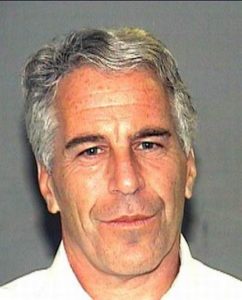
Attorney General Denise George has filed an emergency motion in the government’s civil case against Jeffrey Epstein’s estate, alleging that its co-executors transferred $13 million through a trust created by Epstein in 2013, to three newly created trusts from which they stood to benefit.

The motion also alleges that Darren K. Indyke and Richard D. Kahn were involved in defrauding the V.I. government of $80.5 million in unearned tax benefits through Epstein’s Southern Trust Company, and that they “approved, enabled, and justified millions of dollars in payments that fueled the Epstein Enterprise’s sex trafficking.”
Indyke was the personal lawyer and Kahn an in-house accountant to Epstein, the disgraced financier who was found dead by apparent suicide on Aug. 10, 2019, in a New York jail cell as he awaited trial on child sex trafficking charges. His primary residence at the time of his death was his estate on Little St. James island off St. Thomas.
The U.S. Virgin Islands sued Epstein’s estate in January 2020, alleging that he engaged in a civil conspiracy involving human trafficking, forced labor and sexual servitude in the USVI. At the time the suit was announced, George said the government would seek punitive damages worth $577 million.
The emergency motion, filed Friday in V.I. Superior Court, asks the judge to lift a stay of proceedings in the case and order Indyke and Kahn to submit to requests for evidence “regarding their transfer of Estate assets in an effort to shield Estate assets from claims and to personally enrich themselves.”
The stay was ordered to enable mediation, but according to the motion, that came to “a surprisingly abrupt end,” with the mediator David Nichols’ acknowledgement on Thursday that efforts to reach a resolution are not moving forward.
Indyke and Kahn have filed a motion to vacate criminal activity liens the government placed on Epstein’s estate, arguing they need to access funds to administer the estate. George argues in Friday’s motion that “their depositions and other discovery documents and information are necessary for the Government to have a fair opportunity to make a full record on the Defendants’ pending motion.”
Discovery will develop the government’s record “that the liens are not only authorized but necessary — contrary to the Estate’s contention — and that releasing the liens would damage the Government by freeing the Co-Executors to further dissipate assets,” according to the motion.
George asserts that concerns regarding asset preservation “are anything but abstract,” saying the estate’s value — reportedly around $600 million at the time of Epstein’s death — has plummeted more than 75 percent in two years after compensation paid to victims and for federal taxes, among other expenses. Additionally, Kahn and Indyke have refused to disclose the documents or principals in trusts related to Epstein, despite repeated requests, the motion states.
“Defendants Indyke’s and Kahn’s dual roles as both Co-Executors of the Epstein Estate and central players in the Epstein Enterprise’s criminal activity only underscores the Government’s concerns and brings into question their ability to lawfully, fairly and objectively execute the Estate and trust assets and accounts that are outside of the Estate,” according to the motion.
“The Government alleges, based on substantial evidence, that Indyke and Kahn were both deeply involved in the financial activities of the Epstein-owned entities, including defrauding the government of $80.5 million in unearned tax benefits through Defendant Southern Trust Company,” the motion states. The company was a beneficiary of the territory’s Economic Development Commission’s tax benefit program.
“The Government also alleges, based on substantial evidence from the investigation, that Indyke and Kahn directed, approved, enabled, and justified millions of dollars in payments that fueled the Epstein Enterprise’s sex trafficking, including their direct involvement in payments to women who were forced to have sex with Epstein and/or recruited others to be victimized, and facilitating and maintaining forced marriages between sex trafficking victims to obtain immigration status for foreign victims so Epstein could continue to abuse them,” the motion states.
George states in the motion that the government’s review of financial records reveals that the two men failed to clearly disclose almost $37 million in payments from Epstein in nine years, “apparently far more than could reasonably be attributed to the rates of their professional services.”
Moreover, “the Government discovered that substantial funds kept secret from the Government were transferred for the benefit of the Co-Executors in an apparent effort to enrich themselves and shelter these assets from recovery,” the motion states.
According to the motion, records obtained from third parties reveal that in September 2020, several months after the government filed its civil action, the Epstein-created 2013 Butterfly Trust — which received a wire transfer of more than $13 million in April 2020 — transferred money to three newly created trusts.
“Indyke, Kahn and their spouses were the ultimate beneficiaries for two of the three trusts. The investment advisor for the 2013 Butterfly Trust in written disclosures to financial institutions explained that the decision ‘to decant the assets of the 2013 Trust was based in large measure on the fact that the assets … would be insulated from claims and demands of the beneficiaries of, and third-party claimants against, of the other new trusts,’ which would include the Government’s claims,” according to the motion.
The information provides good cause for lifting the stay of proceedings, and for discovery of Indyke and Kahn and the handling of assets subject to the liens, before the hearing on their motion to vacate the criminal activity liens, George asserts.